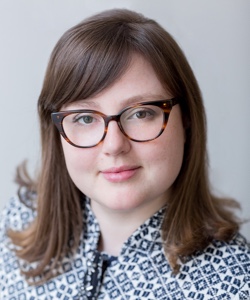
As a former clerk at the Supreme Court, Paul-Erik Veel gets plenty of questions from law students who are thinking about clerking. Students are especially drawn to Veel because he’s a partner at Lenczner Slaght Royce Smith Griffin LLP, one of the country’s best litigation boutiques. Clearly, clerking paid off for him.
But, according to Veel, many students worry that clerking will hurt their chances of landing a job after school. “Clerks don’t have the same opportunities as articling students,” he explains. For one thing, they don’t make as many connections with bigwig lawyers. And what’s more, clerks can’t get hired back by the courts. But should these disadvantages dissuade students from clerking? Not at all, says Veel. To settle this concern once and for all, PrecedentJD asked Veel and two other former clerks to spill the beans on what it take to land a job after clerking.
When you started clerking, were you worried it would make it hard to land a job?

Paul-Erik Veel, Partner, Lenczner Slaght Royce Smith Griffin LLP
“At the time, I didn’t think how the jobs were going to pan out,” says Veel. “I figured I’d be able to sort it out.” And he did: watching lawyers in action in court sparked an interest in litigation, and after clerking, he quickly found work at Lenczner Slaght.
Something similar happened to Andrea Gonsalves. In law school, she had no real desire to practise law. But after two clerkships — one at the Court of Appeal for Ontario, another at the Supreme Court — she fell in love with the drama of the court. Gonsalves decided to become a litigator, and had no problem finding a job at the litigation boutique Stockwoods LLP, where she is now a partner.
So it sounds like clerking is perfect for would-be litigators?

Andrea Gonsalves, Partner, Stockwoods LLP
“Clerkships have the most obvious benefits for people interested in litigation,” says Veel. “It gives you the opportunity to see first hand how judges think and what is persuasive to them.” It’s no surprise, then, that litigation boutiques love hiring former clerks.
That’s certainly the case at Stockwoods. “Clerks are well placed to think, How is the court likely to react if we make this argument?” Gonsalves explains. “That makes for really good litigation instincts. I still draw on my clerkship experience.”
Besides litigation boutiques, clerks can also find work at full-service firms. “My clerking group went to all the major law firms in British Columbia,” says Rebecca Robb, who clerked at the Supreme Court of British Columbia. They now work for litigation groups of firms such as Blake, Cassels & Graydon LLP, McCarthy Tétrault LLP and Norton Rose Fulbright Canada LLP, among others.
So does this mean that clerks have to work in litigation?

Rebecca Robb, Associate, Hunter Litigation Chambers
Definitely not, says Robb, who is now associate at Hunter Litigation Chambers in Vancouver. Several other clerks she knows work in departments within the B.C. Ministry of Justice.
“The legal community as a whole, not just litigation, understands the value of clerking,” adds Gonsalves. “Many people I clerked with have non-litigation jobs in corporate practices, academia and the government. The sky’s the limit.”
But it does seem like clerking has one big downside: you often have to remove yourself from a firm’s recruitment cycle. Considering that, what do clerks have to do to land that first job?
It means, in short, that clerks have to go knocking on doors.
Take Veel, for instance. His clerkship was in Ottawa, but he wanted a job in Toronto. So he started his job search early, putting out feelers eight months before his clerkship ended. Whenever he knew he would be in Toronto, he would schedule back-to-back coffee meetings in the afternoon with lawyers in the city. He strategically applied to a handful of litigation boutiques, one of them being Lenczner Slaght. He wasn’t sure if they were hiring at the time, but emailed an application anyway. Fortunately, they were. He interviewed and got the job. “To secure a job after clerkship,” says Veel, “you need to be strategic and start early.”
Gonsalves makes the same point, and advises students to leverage their clerkship network. “Get in touch with former clerks who do the type of work you want to do,” she says. “I can’t stress how positive the reaction is when someone who sends an email or calls a lawyer they’ve never met before and says, ‘I’m clerking this year, and I’m exploring options for what to do next year. Could we chat?’” She also suggests talking to judges, who are well-connected.
Are there any firms that particularly like to hire former clerks?
The most obvious place to start is with litigation boutiques, and then, full-service firms with a litigation practice. Gonsalves and Robb say these firms are known to hire clerks (listed in alphabetical order):
- Blake, Cassels & Graydon LLP — Litigation group (Multiple offices in Canada)
- Cavalluzzo Shilton McIntyre Cornish LLP (Toronto)
- Chernos Flaherty Svonkin LLP (Toronto)
- Farris, Vaughan, Will & Murphy LLP — Litigation group (Multiple offices in British Columbia)
- Goldblatt Partners LLP (Toronto and Ottawa)
- Hunter Litigation Chambers (Vancouver)
- Irving Mitchell Kalichman LLP (Montreal)
- Lax O’Sullivan Scott Lisus LLP (Toronto)
- Lenczner Slaght Royce Smith Griffin LLP (Toronto)
- McCarthy Tétrault LLP — Litigation group (Multiple offices in Canada)
- Paliare Roland Rosenberg Rothstein LLP (Toronto)
- Polley Faith LLP (Toronto)
- Stewart McKelvey (Atlantic Canada)
- Stockwoods LLP (Toronto)
- Wardle Daley Bernstein Bieber LLP (Toronto)
